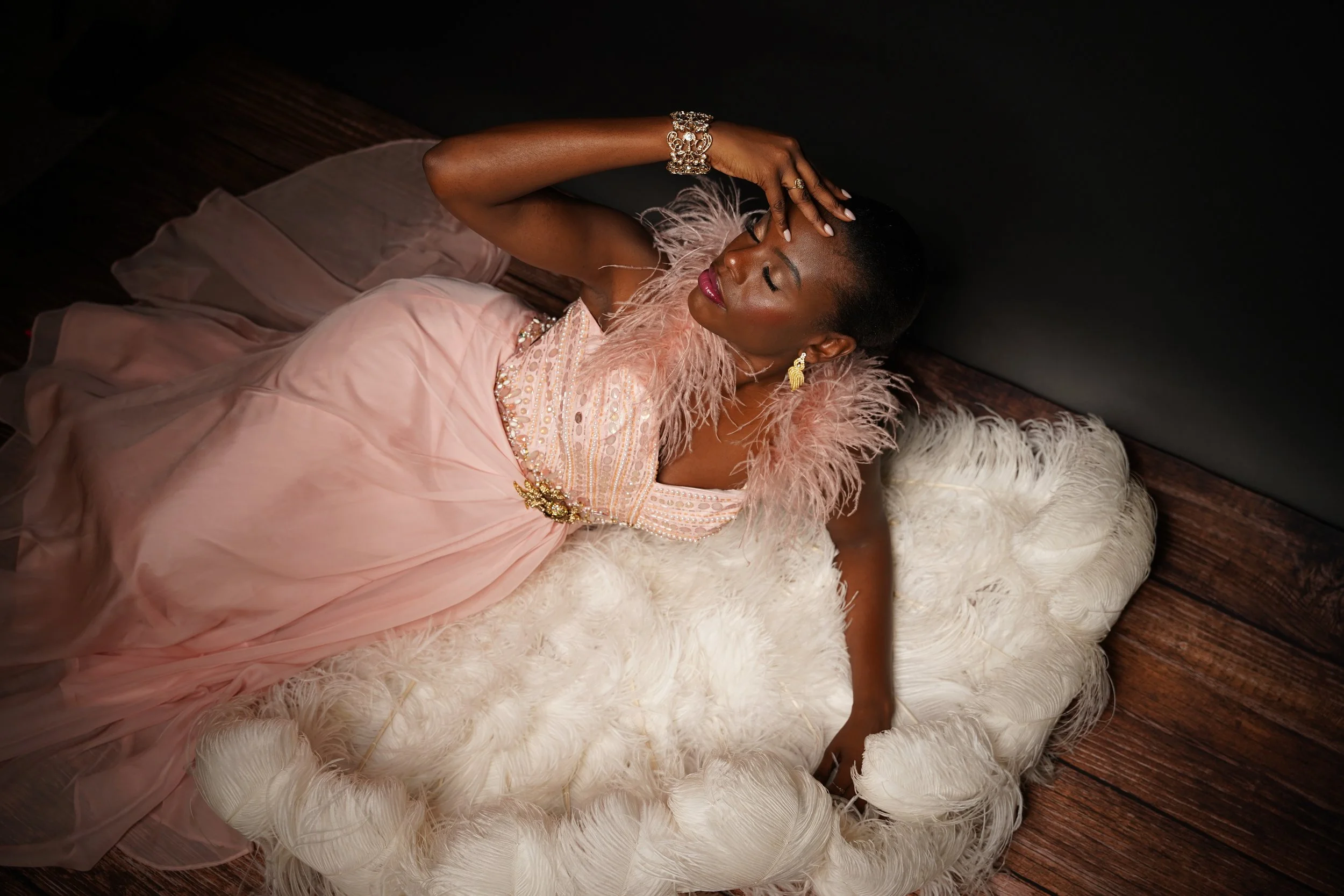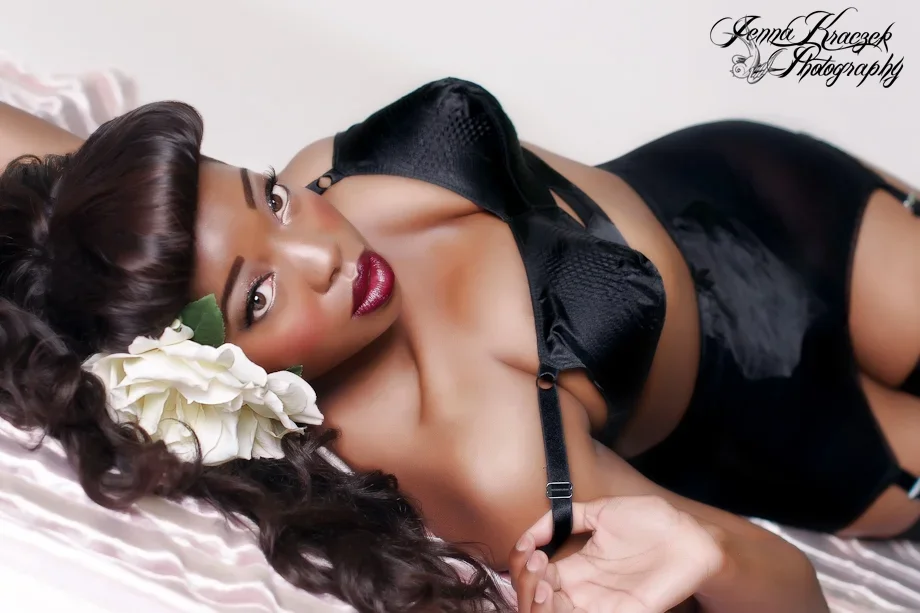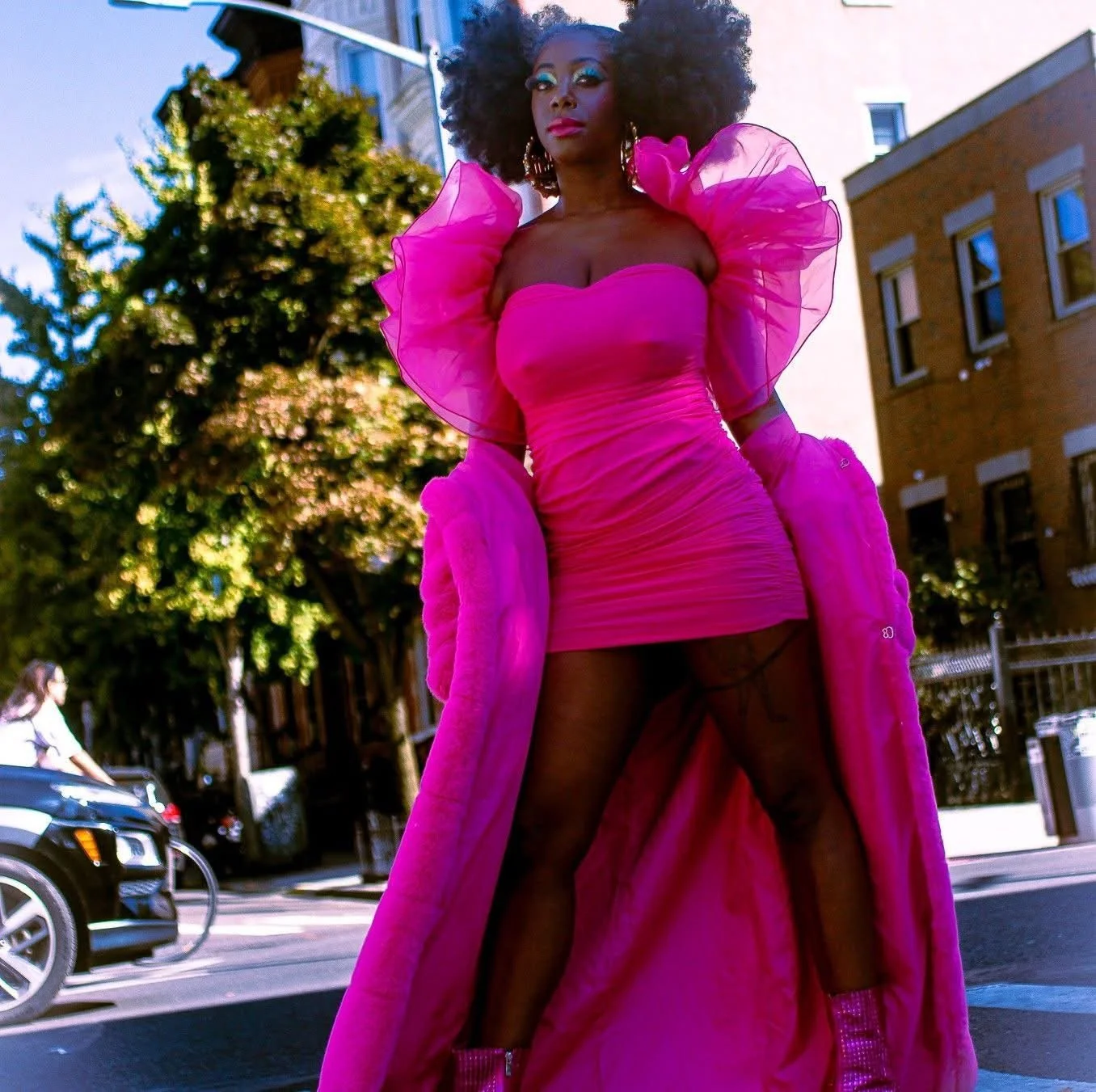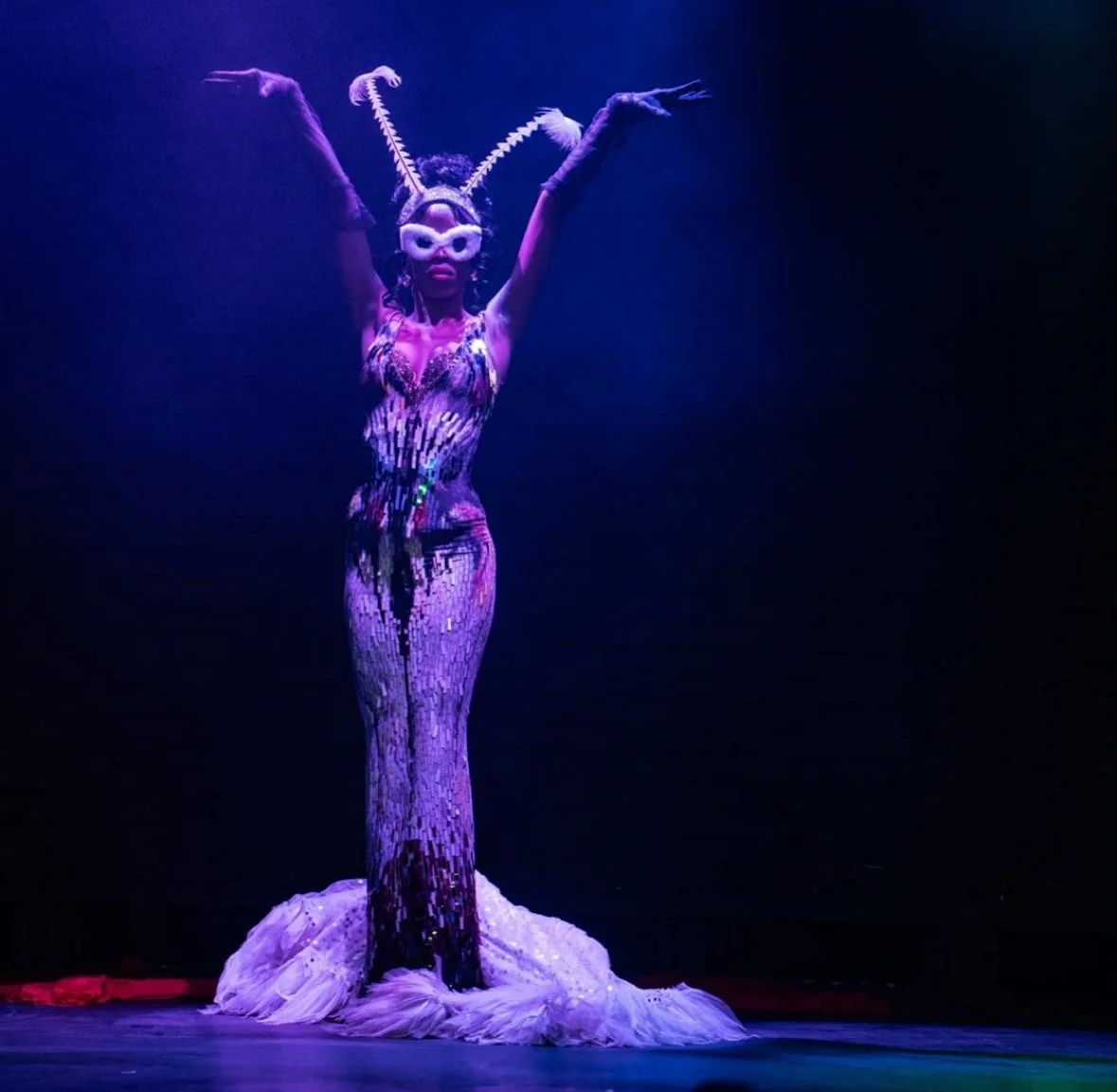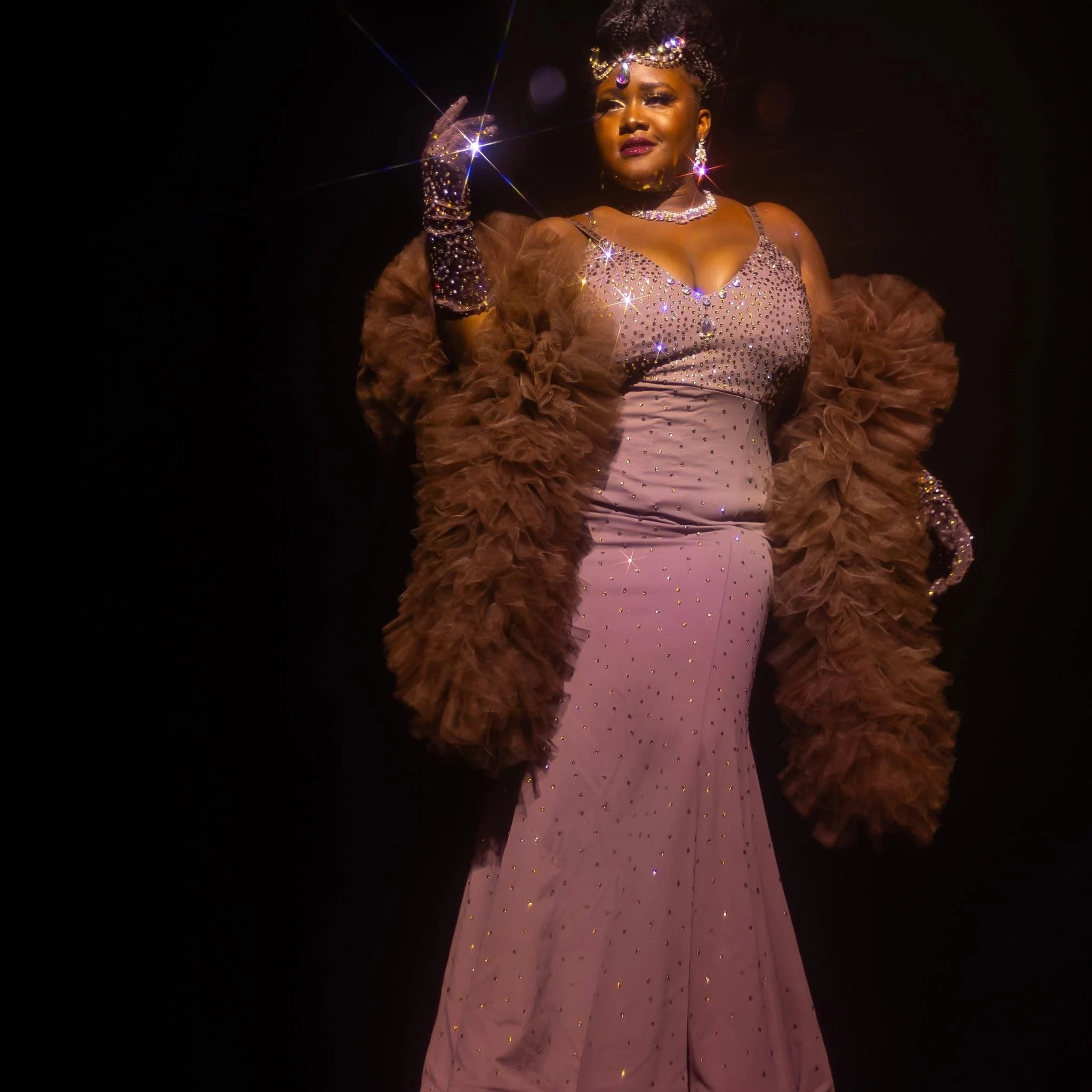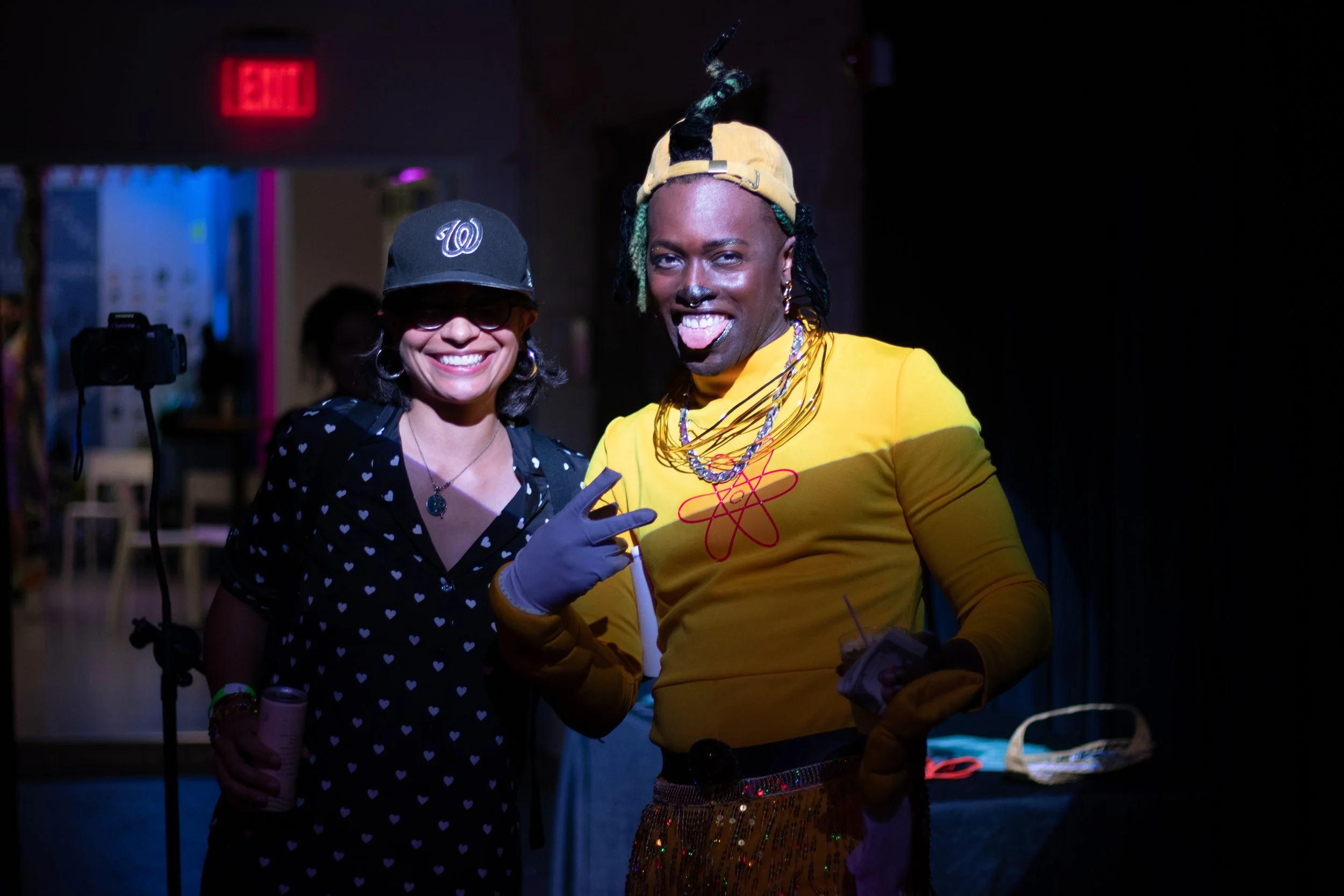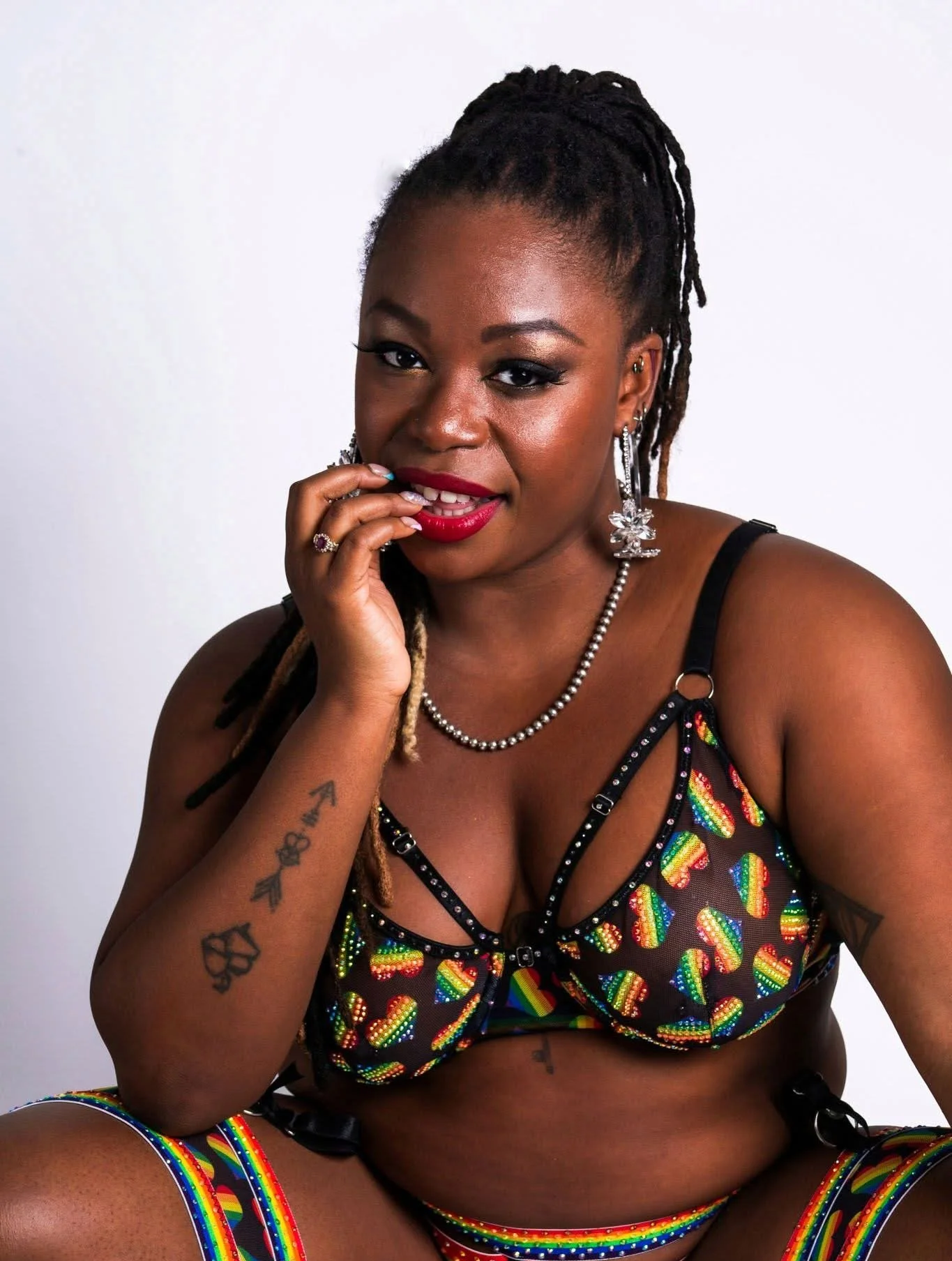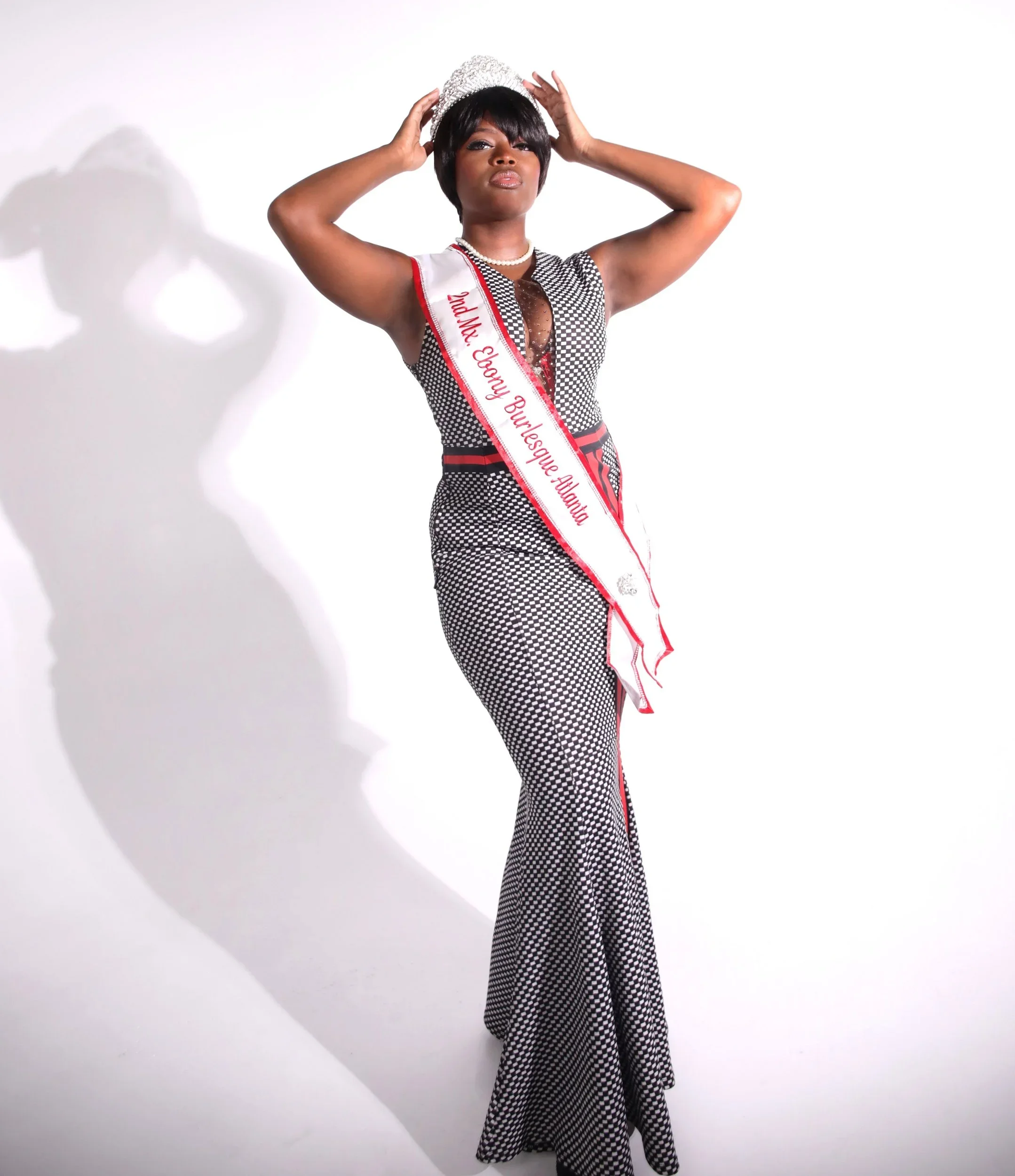Everybody Wants to Be a Showgirl Until It’s Time to Pay Rent
Photo by Dan Beans
It’s officially been over 30 days of my reign as a double queen of North America (and yes, I’m fully aware that only people inside burlesque actually care about our crowns — I say that with love and humor). But in those 30 days, the world has shifted drastically. SNAP benefits have been cut. The government shut down. Friends, neighbors, and family members — mine included — are trying to figure out how to make it through the month.
If we are going to continue having online conversations about survival during this complex moment in history, I think we need to ask ourselves: are we ready to develop new responses that actually produce effective solutions?
Online, people are arguing again — this time about who took what gigs and why. Some say it’s dangerous to perform for those who uphold oppressive systems; others point out that people are losing benefits, rent is due, and artists are just trying to survive. Both sides are operating from fear and fatigue, and both are valid in context. But here’s the question: if we center empathy, accountability, and strategic action, how much could our community build — compared to focusing our energy on online debates or on oppressive systems that already fail to serve us?
WHERE IS THE POWER?
The current Miss Exotic World Jessabellle Thunder has been on a world tour promoting the art of burlesque and inspiring artists of all kinds to believe in their creativity |Photo by Jenna Kraczek
Now, while the world is focused on Florida burlesque, did you know they have they have their own double queen Misty Rose!? Did you also know that we are living in one of the most creative, courageous, and productive eras for femme, Black, and queer performers — finally getting recognition and highlighting that they’ve always deserved? We have Jessabelle Thunder as Miss Exotic World touring the globe (!!!!), Nami Flare is self-producing burlesque documentaries and museum exhibits, Mz. Juno keeping big brass music & Black burlesque alive in New Orleans, and multi-hyphenate Queen Queerly Femmtastic, recently named the first Black Miss Coney Island. Did you even know Maki Roll produced the International Nerdlesque Festival in Washington DC during a military occupation!?
For the past decade, Maki Roll has been pushing fringe arts into institutionally gatekept spaces. This year, as the National Guard patrolled H Street, she took over the Atlas Theatre and brought together burlesque artists from across the country. Photo by Camila Obscura.
Across the country, Black producers are producing bold, original works in theaters — much like Rain Supreme and the Boombox Burlesque team in New York — shifting the power in our industry to allow more Black and Brown performers to lead. How often do we focus on what’s happening locally, in our own communities, rather than chasing external validation from the ops? If we want to keep seeing these miracles, we have to start buying in.
We cant control what other bookings people take but we can harness our attention and resources. Look around and see the work 21st Century Burlesque Top 50 To Watch List Rain Supreme has done in the past year | Photo by La Reina
Fun fact! I am the daughter of immigrants — my parents are from Nigeria and Somalia — and I would never be in a position to do what I’m doing over there with the freedom I have here. I block hundreds of Somali men on Tiktok that routinely threaten to stone me to death because I do burlesque and “expose” my body online as a Somali woman. That awareness grounds me, humbles me, and informs my actions. For all the flaws in this system, I still have access to a level of creative and civic freedom that my ancestors could not have imagined.
Photo of me performing at my friend Poppy Le Fae’s Church show in my custom Duurac…dont tell on me | Photo by Jane Sun
Part of my duty as a queen is not only to positively represent the brands I’m connected to (owned and operated by working class performers) but also to demystify what it means to be a queen, what it means to be a showgirl during this historical moment, and what it means to be me — a Black femme, daughter of African immigrants — finding myself in positions of privilege where I can spotlight my peers. Specifically, I aim to use my platform to highlight Black Americans who are not only entitled to reparations, but who are actively moving culture forward in transformative ways.
The 2024 KC Queen of Burlesque Mz. Juno doing the work on and off stage fueling the NOLA scene | Photo by Darrell Miller Photography
The government doesn’t need to be the final solution to funding our peace. We can do it. The wealth transfer is coming. We will need to be unified. We will need to share. Some may need to move over…maybe even step down so we can make way for change. The Age of Aquarius is here! We need to stay on task. We need to focus on those who need support and those who need our investment so we can create more opportunities for artists of all kinds can thrive.
We support strategic boycotts, yes — but we also support strategic buy-ins. The work of liberation is twofold: refusing what harms us and investing in what heals us. Look at the women who walked out of the Miss Universe pageant in solidarity — a real-time act of unity, grace, and refusal. Look at the people of New York voting Mamdani into power, showing that collective action can rewrite the story when we stand for shared values.
Black burlesque performers are having a moment that needs recognition like the current Queen of Vincenza Misty Rose. She also holds the title of 2024 Monarch of Imperial Burlesque and 2025 Princess of Shade Burlesque Festival.
So today, I present to you my three steps to the Aquarian Liberation Playbook for Burlesque Artists at Large (yes, it’s facetious — feel free to laugh, but seriously): these are the moves I’ve made to reclaim personal power as a performer, as a queen, as a human being, and as someone who participates civically in both government and community.
THE AQUARIAN LIBERATION PLAYBOOK FOR BURLESQUE ARTISTS
First, evaluate your moral panic and focus on mutual aid. If you see a performer in need — like my friend Zaffodil, who is crowdfunding to support their mom — and you can help, do that. If you need help yourself, speak up. Mutual aid is survival, not shame. The first step toward liberation is refusing to rely on oppressive systems to fund our living — and choosing to resource each other instead.
Zaffodil has been a shining force in my productions this year, lighting up every stage they touch and standing tall as a cornerstone of the Baltimore/DMV arts community. Photo by Unifyed Visuals.
Second, we need to turn audiences into investors. To sustain this art form, we must cultivate audiences that reflect our values and are committed to keeping us employed. My career and productions are supported by people who see me and my people. We want audiences that value our lives and our art. That means we have to show up in spaces that feel safe, inclusive, and aligned with our morals. No need to take money from every source. You determine what you need and from who. There is more power in your choice (if you have the privilege to make one).
As someone who once worked in politics, I know how exhausting it is to stay on the defensive — energy is finite and chronic pain is linked to stress, so spend time building networks that welcome us rather than fixating on spaces that exclude us. And it’s very important that I state this: as a producer, if you have the power to highlight and amplify others, do so only for people who share your values. Know your power. Do not platform or spotlight those disconnected from your mission; instead, amplify those building what you believe in. Think for yourself. Think beyond yourself.
When a queen speaks we listen. Even if its just to learn a great resource can be found in the words of the first Black Miss Coney Island Queerly Femmetastic | Photo by Beyond You Portraits
Third, play the long game. Politics, policy, and money move in cycles. Universal healthcare, paid family leave, social safety nets — they are happening slowly in other countries and will happen here. Are we preparing now for when progress returns? Are we documenting the Black, queer, femme art of now so it’s preserved, celebrated, and used as inspiration for future generations? Liberation is intergenerational, and the choices we make today shape tomorrow. And a hopeful note: indigenous communities have always found ways to maintain peace with each other and the land they live on — the work of sustaining community is timeless, and the path forward is not impossible.
Nami Flare is stacking crowns and documenting history in the Florida burlesque scene. Her first documentary film will premiere in Miami this month in Miami, Florida | Photo by Frantz L Cyriac
And this is a tip specifically for newbie performers: difficult conversations will continue to happen online. But so much more can be achieved offline. Your profile is your resume. Call, DM, or sit down with someone you disagree with but share core values. Do not judge a performer or producer by their social media particpation. Remember: although we don’t all perform for the same reasons — some for art, some for profession, some for survival — optics are not the same as intention. Just because someone is silent or responds one way online doesn’t mean that reflects the full measure of their values or care.
Finally, share wisely and generously, with empathy for yourself and others. The plot is long, the stakes are real, and our collective power depends on our ability to lift one another while holding the space for difference.
Everybody wants to be a showgirl until it’s time to pay rent. Times are hard. Most people are one paycheck away from sleeping outside or skipping a meal. Let’s do our best to stay focused. If you want to fight fire with fire do you. I believe love, laughter, and joy can overpower violence. In All About Love, Bell Hooks reminds us “individuals who want to believe that there is no fulfillment in love, that true love does not exist, cling to these assumptions because this despair is actually easier to face than the reality that love is a real fact of life but is absent from their lives.”
If we keep resourcing one another — with space, money, care, and accountability — we can empower the next showpony to create their art from a place of resource, love and a calm nervous system.
HOW CAN YOU HELP?
If you would like to learn more about how you can fund the glitter revival join my email list for more information. You can follow my daily traveling showgirl diaries on my Instagram / Tiktok and if you would like to support Black burlesque artists for change, I have included their projects and payment handles under each photo. Put your money where your mouth is and fund the change you want to see!
